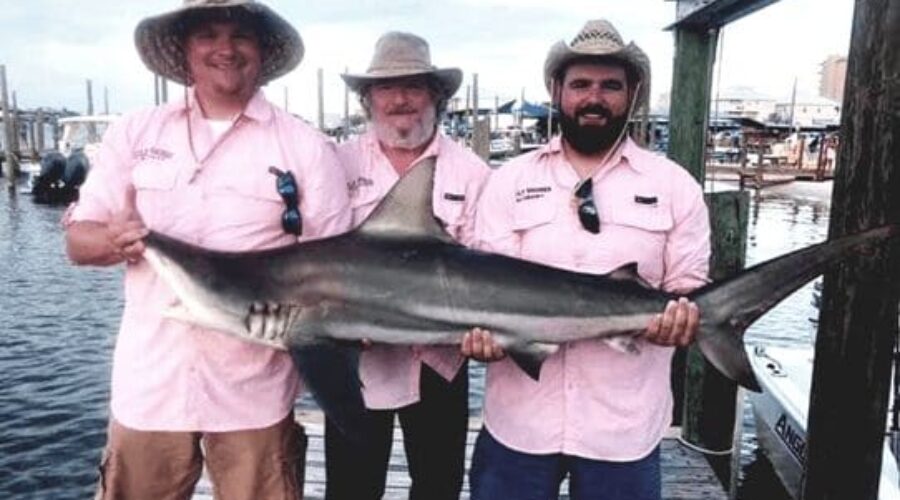Shark fishing laws in Texas
The state of Texas has a 13 coastal counties spanning approximately 14,000 square miles. It spans from Huntsville, TX in the north to Galveston, TX on the international boarder with Mexico.
So as impressive as this may sound, Texas does not have the longest coast line on the United States. Its actually number 6 behind Alaska, Florida, California & Louisiana. You may be asking your self why this matters. The answer is simple. 14,000 miles is a plenty of space to do some serious shark fishing. With that being the case lets dive in.
Species of shark that can be caught in Texas
Sharks that can be caught in Texas can include Atlantic Sharp-nose sharks, Blacktip sharks, Bonnethead sharks, and Blacktip Sharks. Live bait such as squid, mullet, and bonito as well as hardhead or gafftop catfish are effective for catching sharks. Atlantic Sharp-nose sharks much like Bonnethead sharks are commonly caught in Corpus Christi, Texas. While bonnethead and Atlantic sharp nose are smaller sharks the Blacktip sharks are commonly caught in Galveston Texas can be quite large. However if its sheer mass your looking for the Bull shark is always looking to pick a fight in Texas waters. Short fin Makos can be caught offshore while the thrasher sharks are a very popular target for those looking to stick a little closer to land.
This link includes many different sharks that can legally be caught in Texas waters.
Protected species of sharks in Texas
Texas state parks and wildlife protects species of sharks including longfin Mako sharks, big-eyed thresher sharks, sand tiger sharks, sandbar sharks and great whites. It is illegal to keep or harvest these specific types of sharks in Texas. Keep in mind what laws and regulations are enforced in Texas and what areas protected species are found in specific waters. The feds have their own set of rules as well so its important to know exactly whos waters your fishing in.
Illegal methods to use when catching sharks in Texas
Methods such as “chumming” or using stainless steel hooks to catch sharks in Texas is against state laws and will be fined if caught using these specific methods. Texas laws and regulations state that any fisherman attempting to catch sharks must use non-offset, non stainless steel circle hooks with natural bait attached. It’s important to know that stainless steel hooks can remain lodged into sharks if not retrieved correctly, unlike non-stainless steel hooks, which will eventually rust and become weak enough to come out on its own without harming the shark. Any professional guide that advertises them self as a shark fisherman should know the rules. Here at Intercoastal Safaris we take pride in working with vetted guides.
To sum up, shark fishing laws in Texas are enforced to protect sharks from being harmed or becoming endangered. Under those circumstances, Texas does have specific bag limits and laws for catching sharks. For instance, using methods such as chumming or finning when targeting sharks, is illegal in the state of Texas. If this sounds intriguing to you click the link and book a trip with a fisherman that has experience with this subject.



